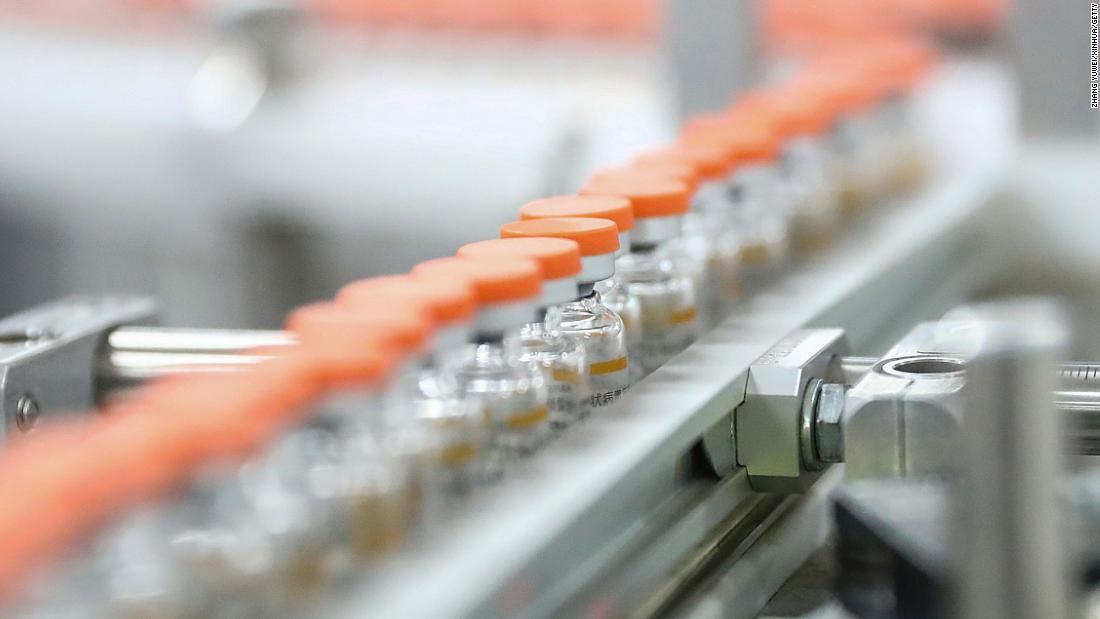
Analysts said the efficacy of Sinovac’s Coronavac vaccine in Brazil – the lowest of its global competitors – could erode international confidence in Chinese-made vaccines and Beijing’s attempts to restore its image from its early mishandling with the first outbreak by supplying Covid-19 vaccines to developing countries , can affect.
“The Butantan Institute and the Sao Paulo government report that the coronavirus vaccine achieved an overall efficacy of 50.38% in the clinical study conducted in Brazil, in addition to (an efficacy rate of) 78% for mild cases and 100% for moderate and severe cases of Covid-19. All rates are higher than the 50% level required by the WHO (World Health Organization), “the statement released Tuesday.
The razor-thin margin for regulatory approval is likely to cause concern among scientists, as the Butantan Institute released partial “clinical efficacy” results last week, celebrating 78% to 100% efficacy in preventing infections.
The government agency funded the phase 3 trials of the vaccine, which involved 13,000 health professionals in eight Brazilian states.
“In terms of the overall effectiveness of the analysis, we met World Health Organization requirements at 50.38%,” Ricardo Palacios, medical director for clinical research at the Butantan Biomedical Center in Sao Paulo said Tuesday at a news conference.
On Tuesday, however, senior members of the Brazilian Ministry of Health told CNN affiliate CNN Brasil that “the effectiveness is a limit,” because “it is at the limit. We have to wait for ANVISA (Brazilian Health Regulatory Agency) to evaluate.”
A Sinovac representative said the company is discussing the outcome but declined to comment further. The final efficacy of the vaccine will be determined by the Chinese regulator of drugs, the National Medical Production Administration, according to the representative.
Potential stumbling block
Yanzhong Huang, a senior fellow for global health at the US Council on Foreign Relations, described the 50.38% efficacy of the Sinovac vaccine as a “disappointing” result that had surprised him.
The results suggest that Coronavac is less effective than alternative vaccines developed by Pfizer-BioNTech and Moderna, which have an efficacy rate of approximately 95%.
Russia says the Sputnik V vaccine is 91% effective, while the British vaccine, developed by Oxford University and AstraZeneca, has an average effectiveness of 70%.
Despite the worse-than-expected results, Huang said the Sinovac vaccine would still be “useful” by relieving pressure on health care systems while reducing the number of deaths, given its greater effectiveness for moderate and severe cases requiring medical treatment. require.
However, its low overall efficacy could hinder Sinovac’s ability to expand its market share globally, Huang said.
Sinovac has signed agreements to supply 46 million doses of its Covid-19 vaccine to Brazil, 50 million doses to Turkey and 7.5 million doses to Hong Kong. It will also deliver 40 million doses of the vaccine bulk – the vaccine concentrate before vialing – to Indonesia for local production.
“As many countries plan to order or have already ordered vaccines from Sinovac, this could undermine people’s willingness to take them, as people may question the usefulness of the vaccines,” Huang said. “It could be a potential stumbling block.”
Lack of transparency
Both Sinovac and Sinopharm have dealt with data disclosure questions. In announcing the efficacy results, the state-owned Sinopharm did not provide details of the clinical trial data. A Sinopharm director said detailed data would later be released and published in scientific journals, without providing a timeline.
There is also an issue of discrepancy in the results of clinical studies conducted in different places.
After largely eliminating the coronavirus within their borders earlier last year, Chinese drug makers had to look abroad for places to test the efficacy of their vaccines. But the results reported so far are far from consistent.
For example, Sinopharm’s 79% efficacy rate is lower than the 86% the UAE announced in December for the same vaccine.
Last week, Brazilian health authority ANVISA told the Butantan Institute that in order to approve emergency use of a vaccine, its global efficacy had to be made public – information the Institute had not received from Sinovac at the time, according to CNN Brasil sources.
ANVISA will meet on Sunday to decide on two requests for emergency use of both the Coronavac vaccine and the AstraZeneca vaccine from Oxford University.
Domestic expectations
The news could also potentially hinder China’s own coronavirus vaccination program, Huang warned.
China has vaccinated tens of thousands of people with the Sinovac vaccine since July as part of a government-approved emergency use program, which includes at least three Chinese vaccine candidates.
Chinese public health experts have repeatedly told the public that they are confident that vaccines made in China are at least as good, if not better, than foreign alternatives, Huang said.
“Learning about this could make people question the safety and efficacy of the Sinovac vaccine or even other vaccines made in China,” Huang said. “I think the government will have to do some convincing work, either with those who have already made the recordings or are about to do so.”

